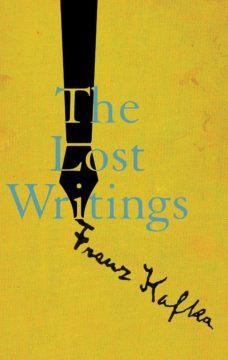Becca Rothfeld in Bookforum:
 IT IS CUSTOMARY TO START an essay about Kafka by emphasizing how impossible it is to write about Kafka, then apologizing for making a doomed attempt. This gimmick has a distinguished lineage. “How, after all, does one dare, how can one presume?” Cynthia Ozick asks in the New Republic before she presumes for several ravishing pages. In the Paris Review, Joshua Cohen insists that “being asked to write about Kafka is like being asked to describe the Great Wall of China by someone who’s standing just next to it. The only honest thing to do is point.” But far from pointing, he gestures for thousands of words.
IT IS CUSTOMARY TO START an essay about Kafka by emphasizing how impossible it is to write about Kafka, then apologizing for making a doomed attempt. This gimmick has a distinguished lineage. “How, after all, does one dare, how can one presume?” Cynthia Ozick asks in the New Republic before she presumes for several ravishing pages. In the Paris Review, Joshua Cohen insists that “being asked to write about Kafka is like being asked to describe the Great Wall of China by someone who’s standing just next to it. The only honest thing to do is point.” But far from pointing, he gestures for thousands of words.
It goes practically without saying that Kafka would have appreciated these squirming feats of self-flagellation. In an essay about the master, we must observe the degrading formalities and undergo the ritual debasements. How dare I, etc. In The Trial, Josef K.’s crowning shame is his inability to reprimand himself for his unspecified crime. Though he knows it is “his duty to seize the knife as it float[s] from hand to hand above him and plunge it into himself,” he lacks the strength to do so. Like Kafka’s most famous protagonist, the critic is convinced of her guilt yet incapable of submitting to her punishment. She apologizes for writing yet another essay about Kafka—sorry!—but still she does not twist the blade and shut up. And so she stands as irrevocably and irredeemably accused as one of Kafka’s harrowed characters.
More here.
